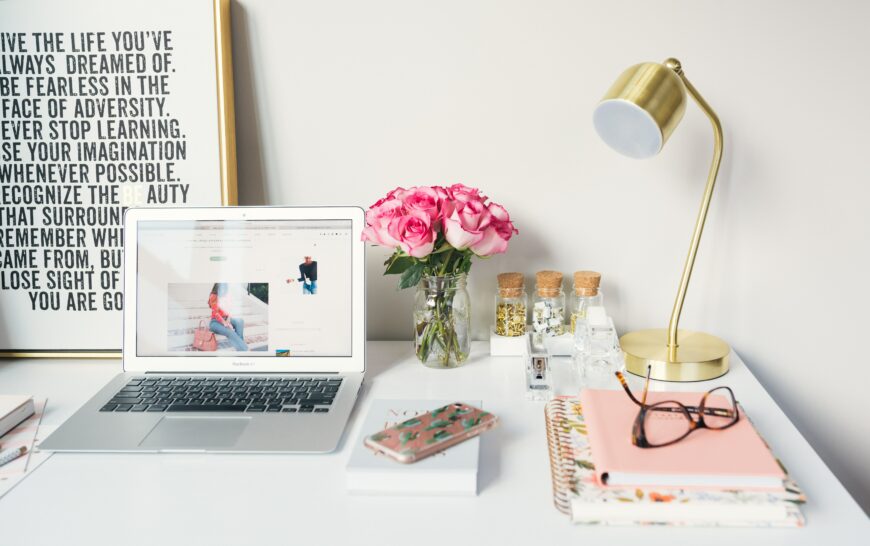
We can all do our bit to become more conscious consumers. Sure, the onus is on the government and manufacturing companies to pave the way for real revolution but there are plenty of ways we can adapt our day to day lives in order to reduce our plastic footprint step by step!
1. Get conscious about your coffee
In the UK alone, we use seven million coffee cups a day, most of which are destined for incineration or landfill. It’s one very ugly caffeinated reality.
Plenty of coffee chains and independents will offer discount incentives if you bring your keep cup with you. Pret offers as much as 50p off their hot beverages when a customer uses their own cup and customers taking away at Starbucks get 25p off.
If you want to save on the pennies and enjoy a guilt-free cup of Joe, it’s worth investing in a reusable cup.
2. Try to use refill stations
With eco-friendly supermarkets on the rise, topping up your washing up liquid and laundry detergent isn’t as difficult as it once was.
Reuse your empty bottles to refill your household products or use glass bottles and a label maker to pimp up your cleaning products apothecary style.
If you’re planning on rustling up a single meal, you can reduce food waste by visiting a sustainable food store and getting as much or as little as you need. If your recipe requires 200g of pasta, you can measure out exactly what you need rather than buying too much and finding that it’s expired before you’ve even had the chance to use it up.
Scooping out your ingredients is a far more interactive and sensory experience, enabling you to have an authentic and informed relationship with your food. By nourishing your body with wholesome and responsibly-sourced produce, you are caring for the planet and facilitating positive food practices. Nude food is the best food!
3. Use ‘naked’ toiletries
Break up with your plastic shampoo bottle, announce you’re consciously-uncoupling your conditioner and divorce your daily dental care.
We’re not suggesting you stop washing and forgo brushing your gnashers but there is another way to live.
Try using soap bars instead of disposable plastic bottles or refilling your haircare and body products at a sustainable supermarket.
Lush Cosmetics also do a great selection of packaging-free naked products! Check out some of our faves:
Jason and the Argon Oil | Sleepy Naked Shower Gel |
4. Buy in bulk
Visiting a bulk food store will reduce both your food and packaging waste. It also often works out cheaper since you’re not paying for excess packaging, single-use plastic or fancy branding.
Making the switch to buying bulk and packaging-free groceries will also encourage you to consider your consumption choices in other areas of your life. Sometimes change can stem simply by challenging the buying habits we’ve become so accustomed to by reconsidering the healthier, more mindful alternatives that are available to us.
5. Ditch the plastic straws
People have come to expect straws with every drink but it’s a minimal and short-lived convenience for maximum plastic waste.
Giving up your plastic straws may seem like a small gesture to make but when done by the majority, it can pave the way for a dramatic change in circumstance for our oceans, aquatic life and beaches.
If you’re not ready to give up on straws all-together, explore some of the bamboo, stainless steel, paper, glass and silicone options.
*Reusable Plastic Straw | *Stainless Steel Straws | Bamboo Straws | *Silicone Straws
6 Embrace the bamboo
From safety razors to toothbrushes, there’s plenty of ways to green up your bathroom must-haves with plastic-free alternatives and bamboo is a great substitute!
The Truth Brush | Bamboo & Steel Safety Razor
7. Do away with single-use face wipes
Everyone has seen the devastating effects single-use wipes have on the environment – 93% of blocked sewage pipes are caused by non-biodegradable wet wipes – but cleansing our face and removing our makeup effectively doesn’t have to come at a cost to the planet.
Minimise the impact your beauty routine has on the planet and reduce water wastage along with unnecessary plastic packaging by replacing disposable cotton pads with these environmentally-friendly options.
Muslin Cloths | *Reusable Cotton Rounds | *Reusable Remover Pads | *Makeup Eraser Cloth
8. Opt for eco-friendly period products
Here’s an ugly fact about your period: 1.5 billion items of sanitary protection are flushed every year. Every. Year!
From the plastic packaging to the applicators, it turns out our periods don’t tend to be all that great for the environment. Dear Uterus, go to your room and think about what you’ve done.
From reusable menstrual cups to period-proof pants and reusable sanitary pads, here are a few ways to make your cycle a bit kinder on the planet.
Moon Cup | *Period Pants | Reusable Pads| Cheeky Wipes Kits | *Reusable Tampon Applicator
9. Reusable nappies
It takes 200-500 years for a disposable nappy to decompose. That’s one long-lasting legacy!
While neither reusable or disposable nappies can claim environmental superiority, washing and reducing single-use plastic seems like the lesser of two evils here.
Even if you replace one disposable nappy a day for a reusable alternative, you’d be saving 900 from ending up in landfill, based on one child being in nappies for two and a half years.
Check out these pooper scooper alternatives for the eco-conscious parent:
The Nappy Lady Reusable Nappy | Fill Your Pants Reusable Nappy | Little Lamb Bamboo Nappies
10. Carry a canvas bag
While the environmental impact of cotton is a hot debate, reusing your canvas bag is better than buying and throwing away a plastic bag every time you visit a supermarket.
If you do buy a plastic bag, reuse it as many times as possible and try not to accumulate more than you need. The same goes for your tote bags, make sure you’re getting enough use out of the ones you have before buying another.
*Oliver Bonas Net Shopper | Lucy and Yak Corduroy Shopper
What changes do you want to make in 2020 to reduce your plastic footprint? Let us know!
*This post contains ad – affiliate links. For more information and to read our disclosure policy, please click here.










